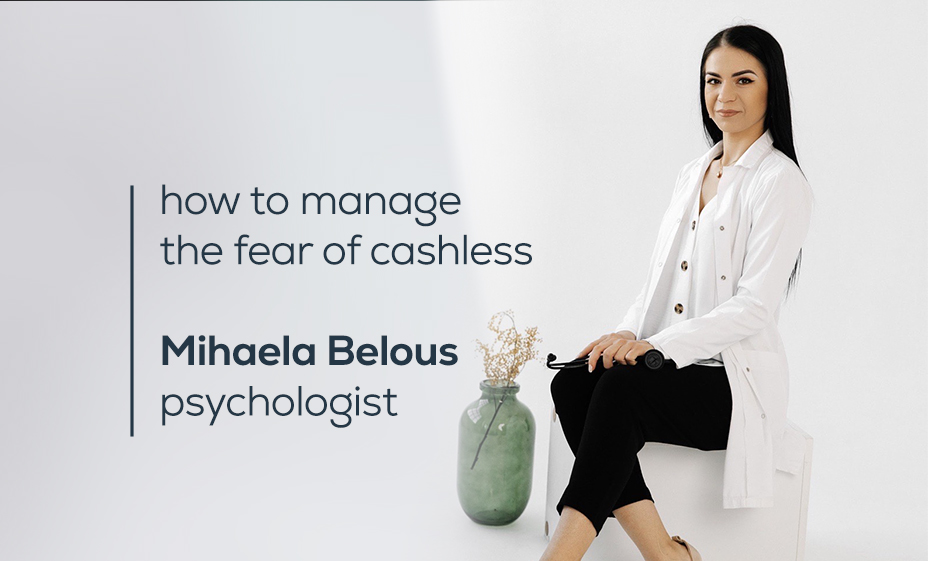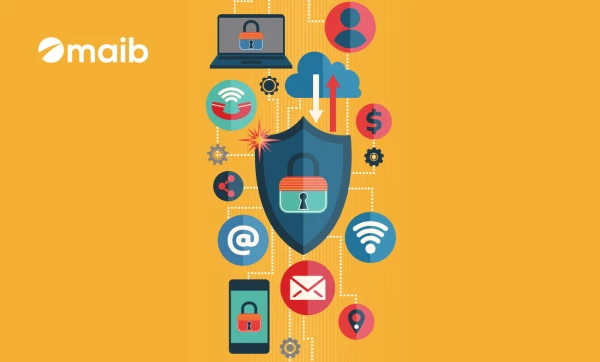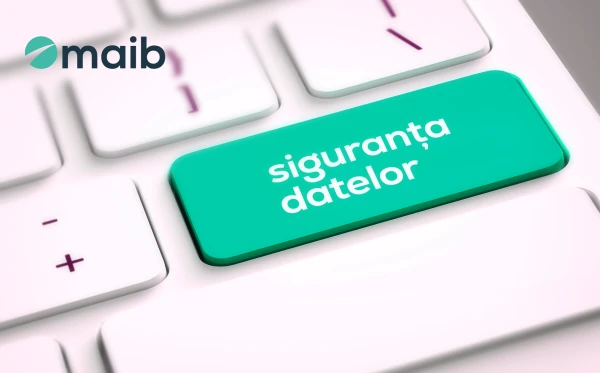Our world is experiencing an increasingly quick process of change and digitisation, especially since humanity became acquainted with the Internet, new technologies, and artificial intelligence. Finance is no exception. Bank accounts, cards, payments, e-transfers and apps that give you all your card information in two clicks are just a few of the most widespread banking tools that have quickly become the norm.
Keeping your money in a non-physical format offers multiple advantages, including security, transparency, and convenience. However, for some people, cashless is associated with the fear of losing control of their financial resources.
So we invited Mihaela Belous - psychiatrist resident, clinical psychology MA, and psychotherapist in training - to explain how the human psyche works in this respect.
Fear and distrust of keeping money in a non-physical format can be related to several psychological factors and personal experiences, such as:
- Data security - many people are concerned that their financial information may be compromised in the digital environment. Concerns about hacking, identity theft and other cybercrime.
- Lack of physical control - often managing money in cash gives people a tangible sense of control. Paper money can be kept in a wallet or somewhere identified as safe, and the holder can have greater control over their financial resources.
- Lack of technology knowledge - distrust of technology and lack of knowledge about securing online transactions can contribute to fear of using digital financial services.
- Previous negative experiences - people who have had previous negative experiences, having suffered, for example, from bank fraud or financial loss in the digital environment, may develop greater fear and distrust.
- Higher risk perception - people may perceive digital money as riskier than physical money. This feeling may be fuelled by news about cyber security incidents or other threats in the digital environment;
- Preference for traditional - users may be attached to conventional money management methods and resist change. Changing financial habits, similar to other habits, can generate anxiety and mistrust.
All these fears and preconceptions about keeping money in a non-physical format do not appear overnight but are created with the help of mechanisms of formation, development and maintenance in the human psyche. These include previous traumatic experiences in this regard, which can create a defensive reaction against keeping money in electronic format, but also a lack of financial education, which contributes to anxiety about managing digital money.
These beliefs can have several consequences for your comfort:
- Limiting financial opportunities, which may limit access to certain online services or benefits.
- Extra financial stress, which can add an extra level of stress to managing financial resources.
- Missed opportunities because refusing to use digital financial tools can lead to missed investment or savings opportunities.
- Reliance on traditional payment methods may be more inconvenient and require additional efforts in financial management.
- Resistance to change and adaptation, which can, in turn, stagnate both personal and professional development.
- Limiting access to efficient services, could offer advantages such as increased efficiency, easy access to financial information and personalised services. Fear of using them can lead to a decline in overall financial and personal life quality.
So, how can we minimize the financial stress and fear of entrusting our financial sources to a bank card? Here, the potential solutions are very simple and gradual.
Firstly, putting extra effort into improving your financial literacy and digital skills is recommended. In this respect, the content published on the maib edu blog and pages might greatly help you.
At the same time, fears can often be overcome by confronting them face to face and discovering that they are not as terrible as your brain suggests. So, here, too, it is advisable to build up experience gradually. Start your cashless journey slowly, with a few small transactions, for example, and then gradually increase your use of digital financial tools. This will slowly but surely build your confidence.
It's up to you to master your fears and maximise all the advantages of modern technology. Cashless is cool. Convince yourself.


 maibank
maibank
 maib business app
maib business app
 online loans – legal entities
online loans – legal entities
 internet banking - individuals
internet banking - individuals
 new internet banking - maib business
new internet banking - maib business
 internet Banking - BankFlex
internet Banking - BankFlex




